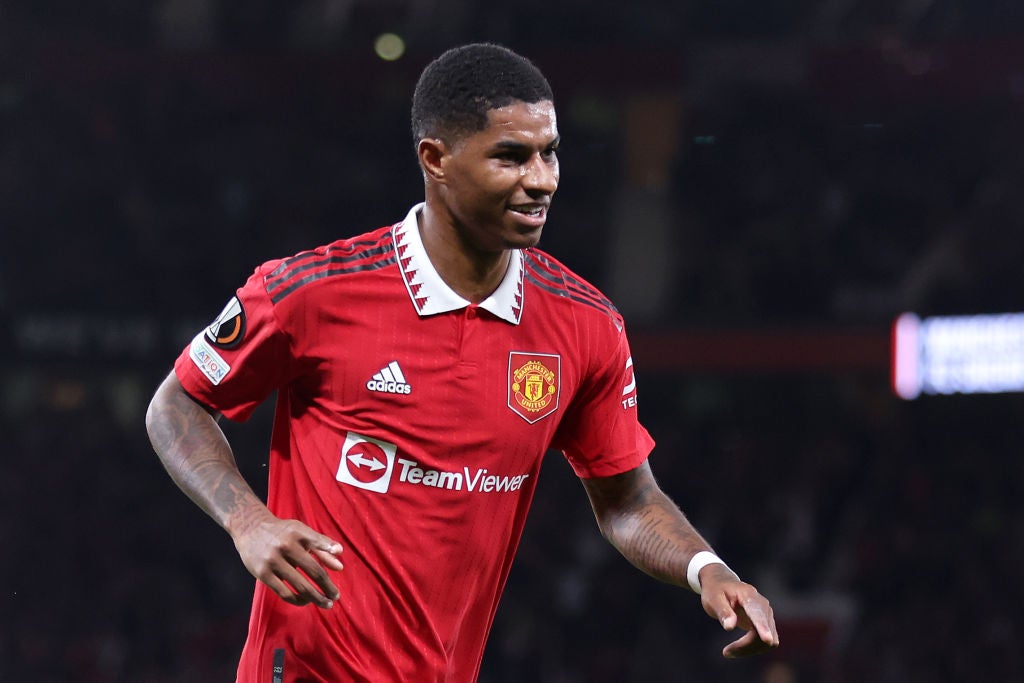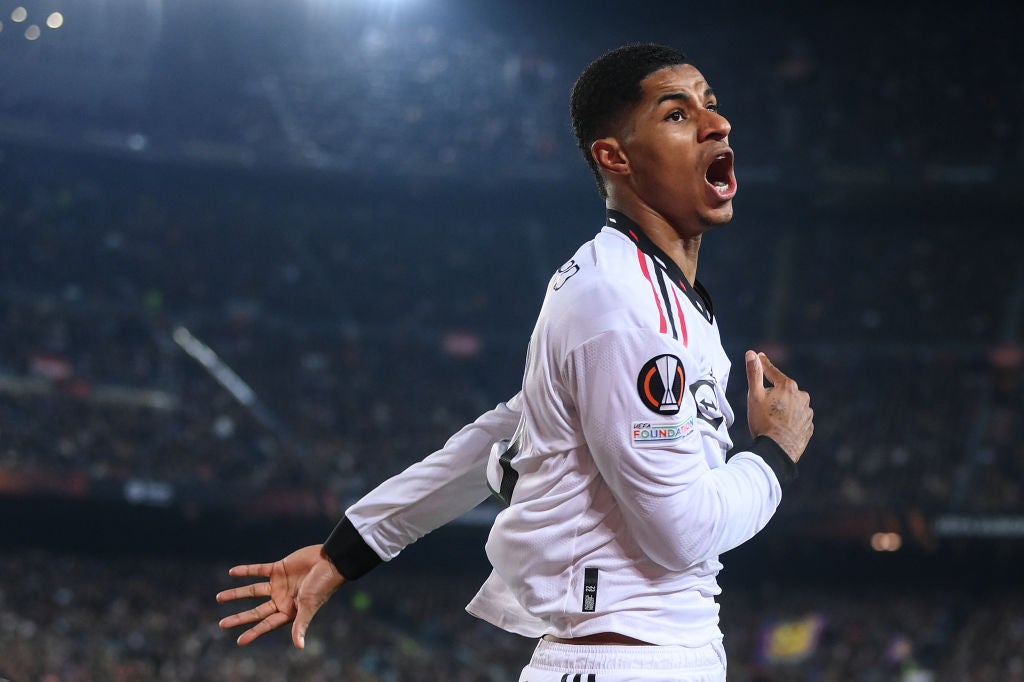
The Carabao Cup final is sandwiched by anniversaries. Saturday marks seven years since Marcus Rashford’s Manchester United debut; Tuesday since his Premier League bow. Each was an explosive introduction; Rashford scored twice against Midtjylland, twice more against Arsenal and a star was born. Within a month, he had a Manchester derby winner to his name; within three, he was an FA Cup winner, within four he had played for England in a major tournament.
Some 15 months into his senior career, Rashford had won the FA Cup, the League Cup, the Community Shield and the Europa League. It was a remarkable medal collection for a teenager; yet now Rashford is 25 and it has not expanded. “We definitely could have achieved more,” he accepted. “But I would have given the same answer if we had won a load of trophies. I’ve not really had a period to stop and look back on the last seven years because it’s very much non-stop.” He has packed 340 games and 117 goals into them; if it has been non-stop, he now feels unstoppable, surfing a wave that has brought him 16 goals in 18 matches since the World Cup.
United may be one game and one goal away from ending their longest trophy drought in six years. If Rashford is the great survivor of their wilderness years, he is the great achiever after his own wilderness year. The most barren season of his career produced just five goals. It has been followed by the most abundant, with 24 goals and counting. Some of the credit, he believes, belongs to forwards coach Benni McCarthy. One explanation seems simple: Rashford is getting into goalscoring positions more often.
“I’m just in the areas to score goals more consistently,” he said. “It’s something I’ve been working on but in the last few years I feel like even the seasons where I’ve done all right I feel I could have added another 10 or 15 goals if I was more consistent in the areas and this year is something I’ve been concentrating on a little bit more.” There was an instructive element to his numbers game: add 10 or 15 to his previous best efforts of 21 and 22 and he would already have been furnished with a reputation among the world’s best players. Now he seems to have gravitated to that level; he is on course to get that extra 10 or 15. Get the latter and 37 would put him in the pantheon: only Cristiano Ronaldo, Ruud van Nistelrooy and Denis Law have ever mustered more in a season for United.

Part of his improvement can be traced to playing pain-free after first having a shoulder problem and then recovering from surgery. Part of it stems from Erik ten Hag’s management. Part of it is confidence. But the vast majority, he suggested, comes from his attitude.
“Football is probably 95 per cent to do with your mentality,” he said. “For me, that’s everything. That gives you the baseline to go and perform. Without that side, you’re just playing off ability. At top level, it’s not enough to win consistently. So a lot of players that have ability, that’s why they play at the top level. But what sets them apart is the mentality. I’ve been on both sides of it.”
That talent was apparent as a teenager. If it was only really last season when Rashford looked like a case of unfulfilled potential, however, the last two months have brought the kind of golden run that lends a ubiquity. Rashford has looked irresistible. No player in Europe’s top five leagues has scored more since the World Cup. He has equalled Dennis Viollet’s six-decade-old record for scoring in most consecutive matches at Old Trafford and Wayne Rooney’s club best for netting in most successive league games at United’s home. He has tormented Barcelona at the Nou Camp.
And yet, in a way, the defining moment may have come off the pitch. It illustrated Ten Hag’s toughness and Rashford spoke like a disciple of the Dutchman as he reflected on his demotion to the bench against Wolves. Rashford had reported late for a team meeting. He made another late entrance, coming on to score the winner, but supported his manager’s decision.

“I never made a thing out of it because if I was a coach, I’d have done the same,” he said. “Because if you don’t have standards in the training ground, how do you expect to go out on the pitch and win consistently? It’s impossible. If you’re going to allow each other to slip or have an off day and no one says anything about it, which is at times a position that we’ve been in, and once you’re in it it’s difficult to get out of it because it becomes normal. However harsh or unharsh that reminder is, it’s a reminder. For me, it was not starting a game but you have to accept it, you have to move forward.”
Few have moved forward quite as far as Rashford: from five goals to 24, from unused substitute last March when Bruno Fernandes and Paul Pogba played as false nines and Anthony Elanga as a winger in a Manchester derby, to the status as United’s main man. But in a way, he may move back, to the days at the start of his career when United won the League Cup, the FA Cup and the Europa League.







